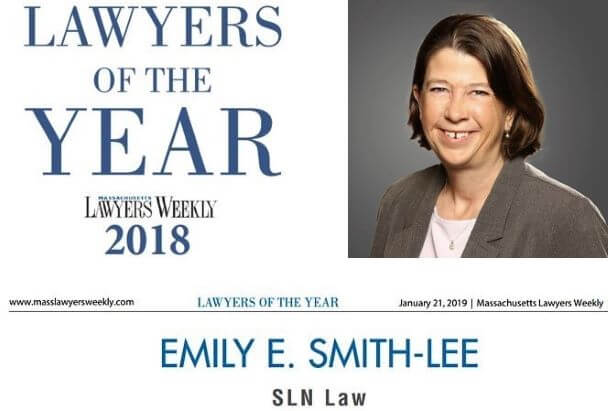Navigating Mental Capacity in End-of-Life Planning: Testamentary Capacity in Massachusetts
Mental Capacity to Revise Estate Planning Documents in MassachusettsWhen it comes to the delicate task of end-of-life planning, one critical factor takes center stage: the mental capacity of the person involved. In Massachusetts, the mental capacity required to execute legally valid estate planning documents, including wills, is known as "testamentary capacity." This concept becomes especially significant when individuals are facing a terminal diagnosis or navigating the complex landscape of end-of-life decisions.
|
We're Here to Help.OR
|
Understanding Testamentary Capacity
Testamentary capacity, the mental capacity necessary to sign a legally binding will, entails relatively straightforward requirements, but its implications are profound. To possess testamentary capacity, the individual signing the will must:
- Comprehend the Extent of Their Property: They should have a clear understanding of the assets and possessions they own.
- Recognize Immediate Family Members: It's crucial that they can identify and acknowledge their close relatives.
- Understand the Consequences of Signing the Will: They must grasp that by signing the will, they are determining how their property will be distributed among their heirs.
Mental Capacity in End-of-Life Planning
End-of-life planning introduces unique challenges when it comes to mental capacity. Terminal illnesses or the natural progression of aging may impact an individual's cognitive abilities. In such circumstances, it becomes crucial to consider the timing of estate planning decisions.
At the same time, there may be vital changes that need to be made in an estate plan while there is still time to do so.
Consulting a Doctor: If you or a loved one is facing a terminal diagnosis, it's advisable to consult with a medical professional. They can assess the individual's mental capacity and provide documentation of their current state of mind. This evaluation can serve as valuable evidence in case the will is ever contested.
Open Communication: Maintain open and empathetic communication among family members and the estate planning attorney. Ensure that everyone involved understands the individual's wishes and the decisions being made. Such discussions are essential to guarantee that the individual's end-of-life planning aligns with their values and preferences.
At the same time, there may be vital changes that need to be made in an estate plan while there is still time to do so.
Consulting a Doctor: If you or a loved one is facing a terminal diagnosis, it's advisable to consult with a medical professional. They can assess the individual's mental capacity and provide documentation of their current state of mind. This evaluation can serve as valuable evidence in case the will is ever contested.
Open Communication: Maintain open and empathetic communication among family members and the estate planning attorney. Ensure that everyone involved understands the individual's wishes and the decisions being made. Such discussions are essential to guarantee that the individual's end-of-life planning aligns with their values and preferences.
Conclusion
In conclusion, mental capacity plays a pivotal role in end-of-life planning, particularly when executing estate planning documents. Whether you're an individual facing a terminal diagnosis or assisting a loved one in this process, understanding and addressing testamentary capacity is paramount. Our experienced team is here to provide guidance and support, ensuring that your end-of-life planning is conducted smoothly and in accordance with Massachusetts law, even in challenging circumstances.
Need Help Understanding Whether a Family Member Has Legal Capacity to Change Their Estate Plan?
We have a FREE online workshop withone of our experienced estate planning attorneys to help give you the answers you need to get started on your road to peace of mind.
Meet Our Estate Planning and Probate Lawyers

Emily Smith-Lee is the owner and founder of slnlaw. She is a 1996 graduate of Boston College Law School. She was previously a partner at the Boston office of a large international firm, where she worked for thirteen years before starting the firm that became slnlaw in 2009. She has been recognized as Massachusetts Superlawyer each year since 2013, and in 2018 earned recognition as one of Massachusetts Lawyers Weekly's Lawyers of the Year.

Jenna Ordway: Jenna is a 2013 graduate of Quinnipiac Law School, and also earned an LLM in Taxation from Boston University in 2015. She has been affiliated with slnlaw since 2011, first as a law clerk and then as an attorney. Jenna has been recognized since 2019 as a "Rising Star" by Massachusetts Superlawyers. Jenna wrote a book on estate planning: The Road to Peace of Mind: What You Need to Know About Estate Planning. Jenna has helped many individuals and families with planning to protect their legacies and loved ones, and planning for the future and succession of their businesses.

Sharleen Tinnin: Sharleen is a 2010 graduate of Northeastern University School of Law, and earned her LLM in estate planning from Western New England Scool of Law in 2016. She has been with slnlaw since 2023. Prior to joining slnlaw, she worked with King, Tilden, McEttrick & Brink, P.C. on complex civil litigation matters. She previously worked for the United States Department of Justice, and received an "Excellence in Justice" award in 2017. Sharleen has helped many clients with planning for their legacies and their future, and navigating the probate process in Massachusetts after the death of a loved one.
How We Can Help
Our experienced team is here to provide guidance and support, ensuring that your end-of-life planning is conducted smoothly and in accordance with Massachusetts law, even in challenging circumstances. You can use the button below to schedule a free information call, or simply give us a call at 781-784-2322.





